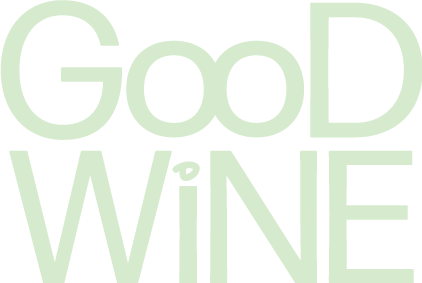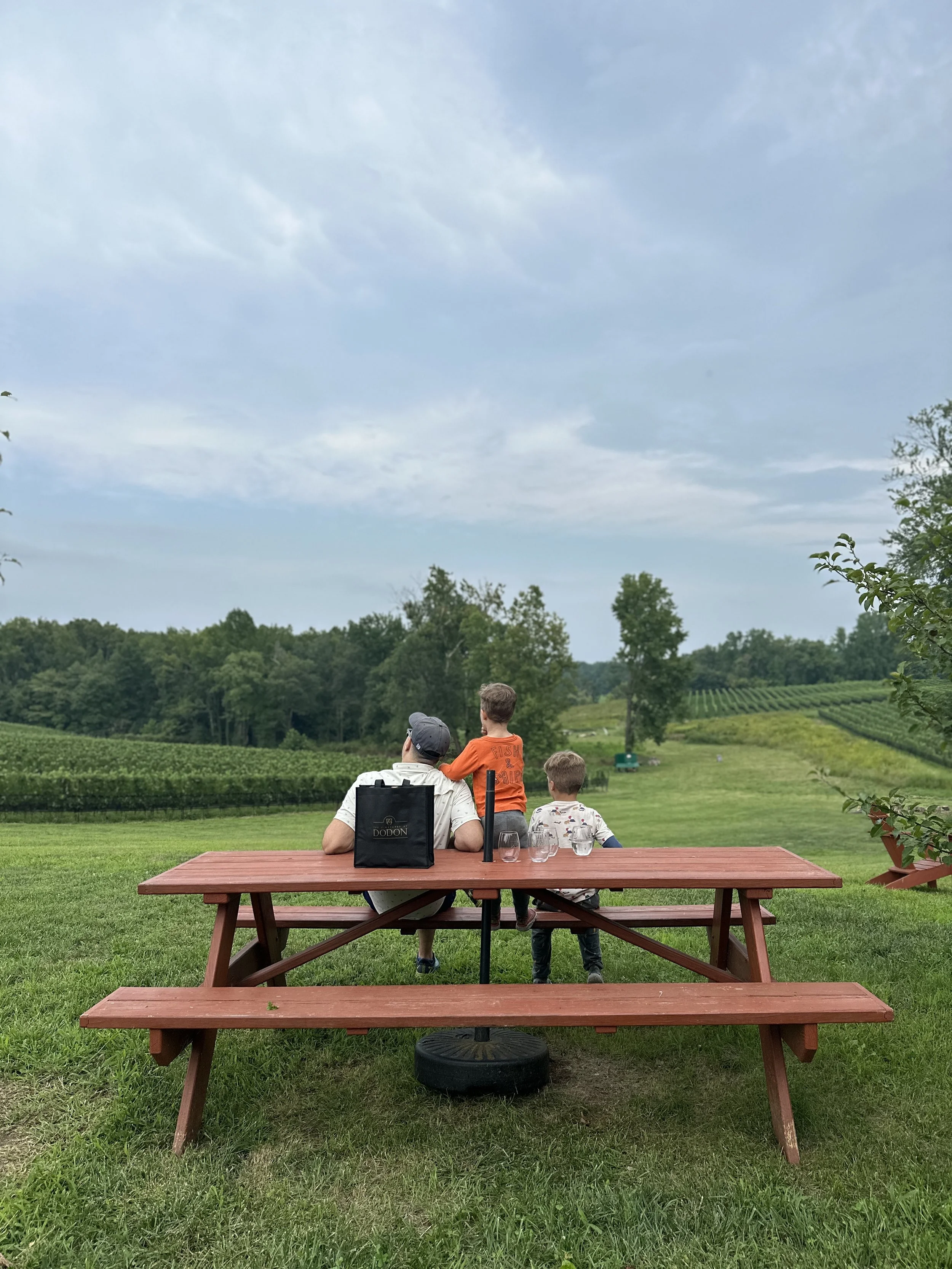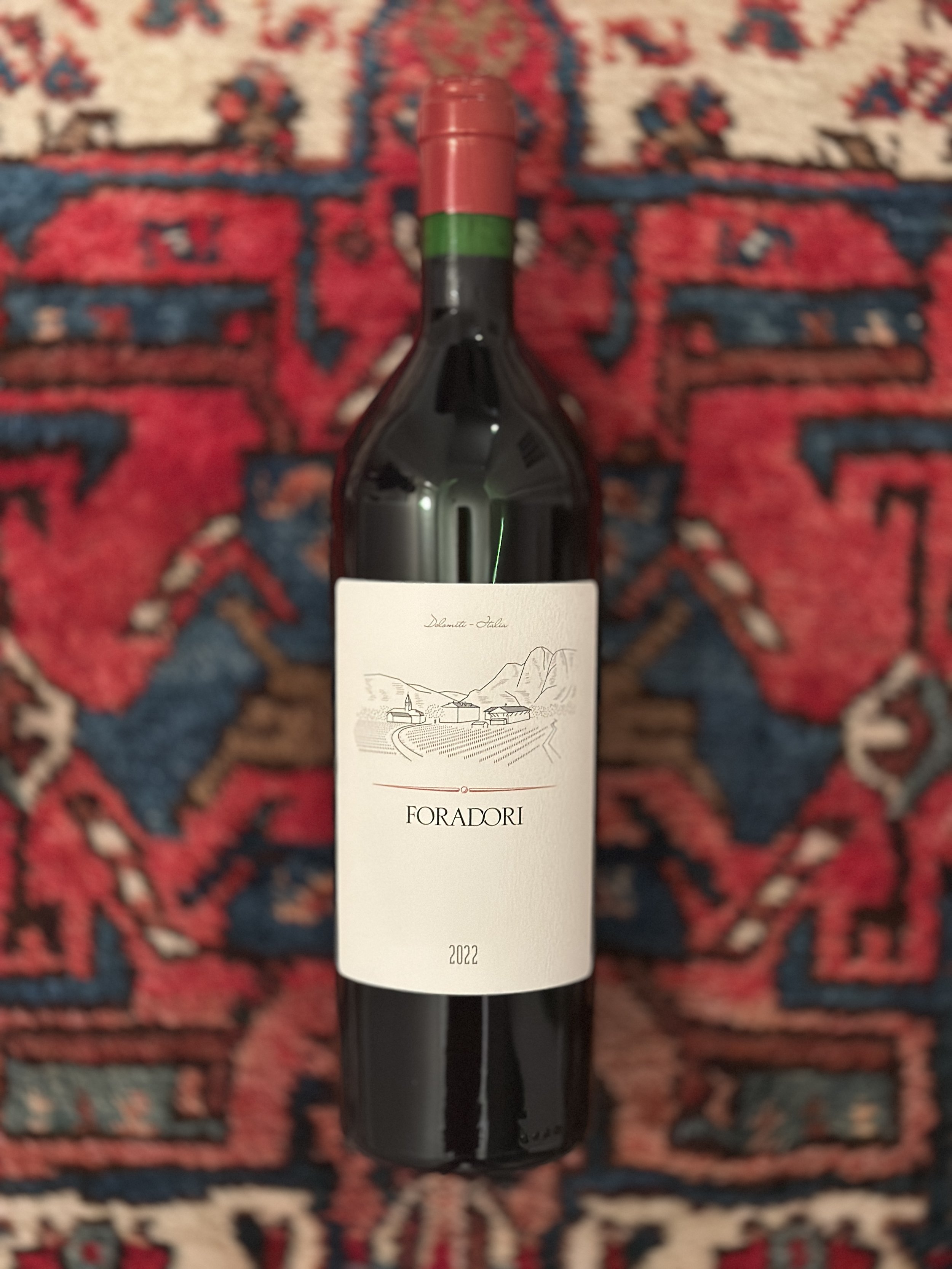Sept Wine Club: The Dirt on Certs
My sweet fam on a visit to the wonderfully planet-positive Vineyards at Dodon a few weeks ago
When I was scheming and dreaming about GoodWine a couple of years ago, I had the idea to create a scoring system to help wine lovers (you!) shop for wine that is better for the planet. I’d do an index that looked at farming, waste reduction, carbon footprint, packaging, and other factors and give each wine producer an overall score, I thought. Oof! Easier said than done. I now know this will take time, energy, resources, and a large dose of creativity. I’m not daunted, but this is a long-term goal, and that’s ok.
The same goes for certifications for grape growers and winemakers. The commitment, time, financial resources, and technical know-how it takes to get certifications is admirable, and it’s great to see a seal or label that tells you quickly that the wine is made with with the planet in mind. But it’s by no means easy or fast to get that seal of approval. (If this is all Greek to you, check out my write up last year to get a bit more of a deep dive on certifications.)
For this reason, we want to give producers that have gotten certification credit, but we don’t want to exclude those who are making great choices even without getting certified. This is what this club has been all about so far: Telling stories about folks making wine with the planet as a top priority.
This month, we’re highlighting three producers that have gotten certifications and that have great stories, too: 1) Perés Baltà from Spain, which is certified organic and also certified biodynamic by Demeter; 2) Cassini from Bordeaux, which is certified organic; and 3) Foradori from Italy, which is certified biodynamic. Two of these three are female-led wine projects, and all three are really really delish IMHO.
To give you a bit of a road map: There are many different organic certifications with different criteria, but they all generally indicate that no synthetic herbicides, pesticides, or additives are used. The United States’ “USDA Organic” certification means that no sulfur is added, either; this is different from EU Organic, which does allow it. (Sulfur doesn’t sound great, but it’s an important disinfectant that keeps wine from spoiling and increases its shelf life.)
Biodynamic certifications, of which Demeter is the most famous, follow a holistic philosophy where grape growing is part of a larger ecosystem. There’s an interesting synergy between people that practice biodynamics and care for the planet and environment, so biodynamic certifications can be a helpful indicator of a wine that’s a good choice for the planet.
Are you enjoying the wines or have feedback to share? Shoot me a note or message me on Instagram at @getgoodwine! I’d love to chat. And for past months’ write-ups, just click here.
The Wines
First we have an orange wine from the ladies at Parés Baltà, a Spanish wine producer that is certified organic as well as certified biodynamic by Demeter. If you’ve been with us a for a while, you’ll know that we interviewed Parés Baltà last year and heard all about how they work to recycle and reduce waste in their work. (Plus, Jess from UnWined Belle View has even visited, so stop by the shop and hear more straight from someone who’s been there!)
This wine is from the Xarel-lo grape with a small portion of Gewürztraminer skins added after pressing. The result is a lovely and unique aromatic wine with notes of apricot and a long finish. Salud!
— Parés Baltà, Penedès Materia Prima 2023
Last month, we did not have reds! Not only is it almost fall (right?), I missed red wine. This first red in our trio is the organically certified Cassini Bordeaux Rouge. The wine is farmed organically and with a biodynamic approach. No insecticides were used in the farming.
If I’m not mistaken, this is the first merlot-only wine we’ve had in the club. It’s plushy and plum, but still lean in weight, so the perfect entry to fall. Enjoy—and maybe with a slight chill?
— Cassini, Bordeaux Rouge 2021
I’m super pumped about this wine. When trying to find the picture above in my photos app, a search of the word “Foradori” (the name of the producer) resulted in pictures of many wine menus I’ve taken over the years, because this producer is a darling of the wine world.
This wine is super complex and delish. It’s made from the Teroldego grape, which is unusual and native to the part of Italy that the wine is from—the Trentino/Alto-Adige or Südtirol region. From winemaker Elisabetta Foradori, this wine is literally listed in the Teroldego section of a huge Italian wine book that I have, which was fun to discover. Foradori’s wines are biodynamically certified, and she takes good care at every stage of the process. Enjoy!




